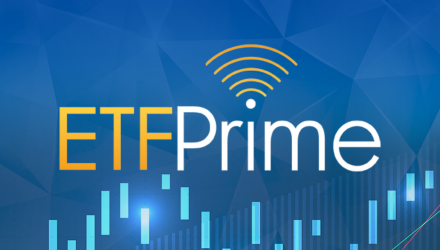On this week’s episode of ETF Prime, host Nate Geraci is joined by Tom Hendrickson, president of ETF Trends and ETF Database, to discuss how recent geopolitical events are impacting the ETF world and investor behavior. Also joining the episode, Direxion’s Dave Mazza offers his perspective on the current market environment and spotlights several thematic ETFs. Finally, Infrastructure Capital’s Jay Hatfield explains the investment process behind the recently launched ICAP fund.
First up, the unfortunate Russia-Ukraine conflict is currently drawing the most attention. Of course, everyone hopes that this situation de-escalates, but one cannot overlook the financial impact. With that in mind, things were largely trending in the wrong direction before this tragedy became an additional factor.
With Hendrickson, there’s much discussion regarding what investors and advisors are currently researching. As he explains, the interest in Russia and Russia-based ETFs is up 2100%, which is not surprising.
“What’s going on from a market dynamic standpoint is certainly very top-of-mind,” Hendrickson adds, noting how many funds have gained traction based on connections to Russian-based stocks and emerging markets.
Additionally, the theme of inflation and its role in the commodities complex has been another notable area. Oil and natural gas have all been areas looking at a significant increase in interest from an advisor standpoint. Wheat has been the big blowout there recently, as Ukraine is a major producer, and advisors want to know how this will be playing out.
Looking at emerging markets, Geraci points out the Freedom 100 Emerging Markets ETF (FRDM), which uses a “freedom-weighted” approach, meaning that it doesn’t own any Russian, Chinese, or Saudi Arabian stocks. Hendrickson has also noted that the sudden interest in this fund has led to speculation on where people believe they’re gaining the exposure they’re looking for without dealing with extreme volatility. It’s a small fund, but one worth keeping an eye on.
One more note: Emerging market stocks have outperformed the S&P 500 so far this year. That’s an interesting note to consider, given all that’s going on, before the conversation takes a turn toward investor behavior.
Thematics: A New Direxion
Later on, Dave Mazza, head of product at Direxion, has the chance to dig into the company’s growing suite of thematic ETFs, including the Direxion mRNA ETF (MSGR). The interesting thing about this move is how it focuses on disruptive technologies, which have been extremely challenged recently.
As far as where the markets are right now, Mazza notes that “The elevated level of uncertainty is here to stay.” There are geopolitical concerns and thoughts on how the Fed will thread the needle between the tremendous economic growth seen and the significantly high levels of inflation that are far from transitory. As a result, markets have been hit hard.
“We’ve seen significant repricing, but the questions of where interest rates will go remain quite high,” Mazza adds.
Looking at how investors should be looking at these ETFs going forward, it makes sense to be concerned, according to Mazza. Keeping growth stocks in mind, it’s clear that the strong earnings aren’t going away, while the disruptive earnings have shown to be unprofitable today, regardless of what the future may hold.
“The growth profile and the potential for disruption haven’t necessarily changed,” Mazza notes. This is an environment where investors should focus on what allocation they want to have toward particular themes that may have a long-term tail with them. And all through this, keeping volatility in mind is important.
InfraCap It All Off
Finally, Jay Hatfield, founder and CEO of Infrastructure Capital Advisors, explains what’s going on with the recently launched InfraCap Equity Income Fund (ICAP). The firm also offers preferred stock and MLP ETFs, which is great to look at, given the current market environment and Hatfield’s more value-oriented approach.
Delving into ICAP, Hatfield explains how he feels that defensive dividend stocks, which he believes that investors should always have a significant allocation toward, are on the path to outperforming. It’s timely, and Infrastructure Capital Advisors holds household names in funds highly diversified by sector.
ICAP also does two things to enhance the yield. The fund has a yield of just over 7%. It has modest leverage, with the extra capital invested in preferreds to keep from significantly raising the fund’s volatility. Also, the company rates very short-term covered calls, not to cover the dividend, but to add extra return.
Listen to the Entire ETF Prime Episode Featuring Tom Hendrickson:
For more ETF Prime podcast episodes, visit our ETF Prime channel.

